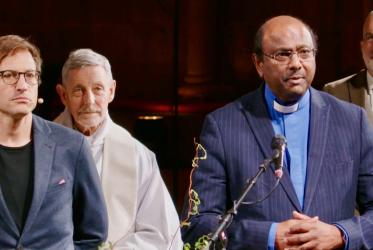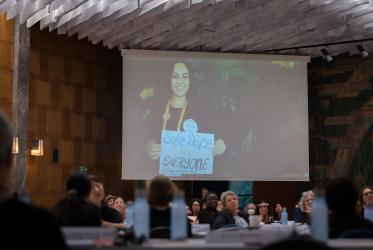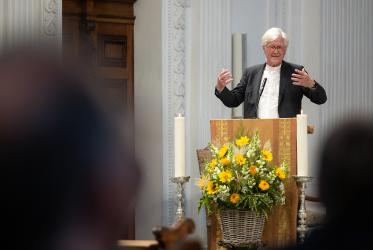The World Council of Churches (WCC) Assembly Planning Committee (APC) has issued initial recommendations following its meeting on 1-6 February in Bossey, Switzerland.
The APC, tasked with examining the nature and style of the WCC 11th Assembly, reports to the WCC executive and central committees.
At its meeting, the APC explored spiritual life and communication possibilities, discussing assembly participation and seat allocation, alongside practical aspects such as consideration of financial matters.
Throughout its exploration, the APC considered gifts and lessons from previous assemblies.
Regarding the nature and style of the upcoming assembly, APC members emphasized the importance of working together on what divides humanity today, and how churches and ecumenical partners can jointly work to build a peaceful and just world for all.
“The WCC assemblies are a space for the broader ecumenical family to gather, in order to discern and commit to a common way of addressing the issues of the world,” explained Miriam Weibye, a rapporteur for the APC as well as a WCC Central Committee member for the Church of Scotland. “Creating an inclusive atmosphere is important in an effort to ensure that all churches and voices are heard in the assembly.”
The APC also emphasized the importance of space in which delegates are able to express themselves, enabling all member churches to have full and valuable input into the future strategic framework of the WCC following the assembly. The APC recommended that “home groups” be created in which all participants have such a place.
The APC also recommended creating ways to bring a new generation into the ecumenical movement.
Spiritual life should permeate all aspects of the assembly and be a learning experience, the APC recommended, suggesting that a prayer for each day be developed for use in all the various aspects of assembly life. The committee also suggested creating a safe and quiet place reserved throughout the day for meditation and prayer.
In conclusion, the APC affirms the assembly as central to the life of WCC member churches and for the entire ecumenical movement. “As a unique event, the assembly provides the opportunity to continue our journey as a living expression of the fellowship of churches seeking to fulfil together their common calling,” said Metropolitan Prof. Dr Gennadios of Sassima, vice-moderator of the WCC Central Committee and moderator of the APC. “We invite and encourage member churches and all ecumenical partners to join and contribute to the ongoing process.”
The Assembly is the "supreme legislative body" of the WCC, and meets every eight years. The formal purpose of the Assembly is to review programmes and determine the overall policies of the WCC, as well as to elect presidents and appoint a Central Committee which serves as the chief governing body of the WCC until the next assembly. The Central Committee in June will decide about the theme and the assembly venue.
WCC Assembly Planning Committee convenes initial meeting (WCC press release of 1 February 2018)




